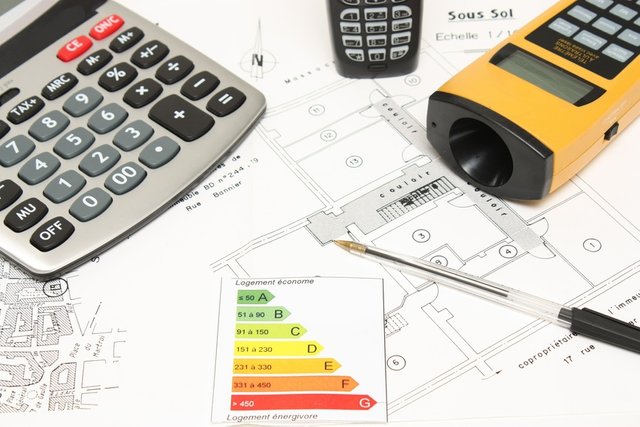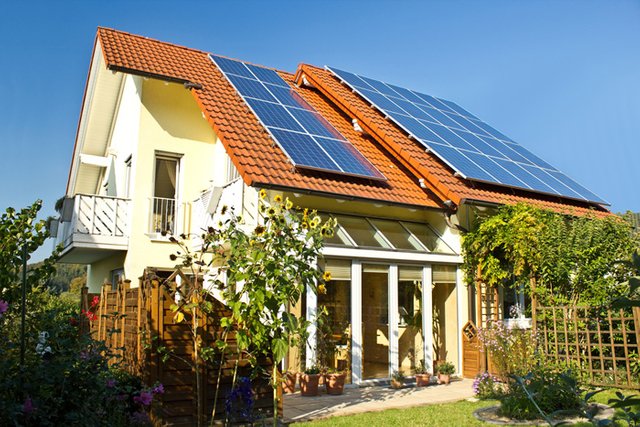
As a homeowner, you must have a year-round list containing all tasks that you need to complete in order to protect your house against unexpected weather changes or extreme weather events. The main things that you must do early in order to avoid unpleasant situations refer to combating direct sun by finishing or refinishing the planks with a UV protectant sealer, adding a fresh coat of paint adequate for each season, cleaning and pitching gutters at the right angle, checking the roof for damage periodically, identifying and correcting concrete cracks, trimming the trees surrounding the house, sealing leaks before the rainy season comes and outsmarting critters. Apart from changes in weather and routine, the change in seasons also comes with an increase in utility bills, which homeowners can prevent by mastering the basic energy saving secrets or making their house more energy efficient. Of course, such a project requires a significant financial investment, but it is worth it because people can notice the benefits in the long term.
Insulation: the main solution for homeowners expecting winter

The main question that probably all homeowners think about is: how can seasonal changes affect my house, more exactly? Well, the answer varies, according to each region but usually, the simple transition from one season to another, summer to fall is just one of the examples, can take a toll on the structural components of a residence. Just think about excessive humidity and extreme temperatures. These two are powerful enough to gradually destroy a house, if not properly maintained. One of the methods people resort to when it comes to protecting their home against external factors refers to insulation. The best part about insulation is that, besides adding a second layer of protection to the residence, it also helps the owners save money on utility bills. In fact, most homeowners consider insulation when it comes to preparing their house for the cold season but this decision proves to be extremely beneficial for the summer as well because it does not let cool air out. People can choose to insulate the walls, the windows, the doors or the attic.
Clever energy-saving tips that all people should master

There are many ways to save energy inside the house. Some of them include trading the dishwasher for Mother Nature when it comes to drying dishes, lowering the thermostat, unplugging home electronics when not in use, not washing clothes as often if not necessary, installing low-flow showerheads, turning off incandescent lights when leaving the room, sealing air leaks, which can help homeowners save energy with approximately 30%, raising the temperature inside the house slowly and opting for Energy Star products. Other energy-saving tips that everyone owning a residence should know involve changing filters in furnace, closing curtains at night, adding aerators to faucets, insulating hot water pipes, opting for the hibernate mode instead of a screen saver when not using the computer, not opening the oven door when cooking, air-drying clothes and installing a programmable thermostat. Homeowners should know that conserving energy and costs is more than possible when adopting a sustainable lifestyle, buying energy-efficient appliances, getting tax credits, adding a ceiling fan, modifying lighting, limiting bath time and buying local.
How to save energy during the spring and summer season

The truth is that homeowners have much more to do than just clean their house for each season. When the nature comes to life, people roll up their sleeves and start spring cleaning, which also represents the perfect time to reduce energy waste by servicing the AC, inspecting the entire house for leaks and seal them if found, cleaning appliance ducts, vents and coils but also planting shade trees and bushes strategically to combat direct sun and allow sunlight to warm the residence during winter. Those who do not prepare their home for summer might not be able to have fun in the sun. Homeowners can prevent high energy bills by keeping the windows open more often, especially after the sun sets, unplugging not only appliances but also computers and chargers when leaving on vacation or just spending time outdoors as a family, trading the oven for the outside grill, blocking out the sun by using thermal shades and letting Mother Nature air dry all clothes by hanging them out in the backyard. Just like mentioned above, attic insulation might prove to be useful in the hot season as well, but most people resort to it when the cold season approaches.
How to save energy during the fall and winter season

When the fall season comes, besides pulling out their cozy sweaters, homeowners must also think about ways to save energy. This is more than achievable by winterizing water lines and taking good care of the AC, sealing the flue if the fireplace does not have a big role in the house and sealing potential leaks to make sure that warm air does not escape. After completing all these tasks, a cup of hot apple cider would be great. Finally, the arrival of winter raises concerns for homeowners who live in certain regions with extreme weather conditions. They have to protect their residence by setting the ceiling fan to run backwards and keep a warm ambiance in the house, lowering the thermostat a few degrees when leaving home, adding thermal drapes, which keep cold air out and warm air in, as well as managing the holiday lights display smartly. Each season comes with certain responsibilities that people must fulfill in order to protect the structural components of their home, which practically represents the biggest investment of their life. Year-round tips that homeowners can put into practice in order to make their home energy efficient include turning off the lights when leaving a room, lowering the temperature on the water heater with just a few degrees and saving money all year long, reducing carbon footprint by minding water use and closing off unused vents. Just think about it: if you have a room in the house that nobody uses, lighting, heating or cooling it is just a waste of energy and money.